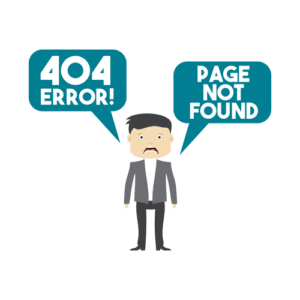
Generally speaking, bookkeepers help collect and organize data and may have certain certifications to do so for your business. On the other hand, accountants are generally equipped with an accounting degree and may even be state-certified best record keeping for small business CPAs. You can expect most bookkeepers to maintain the general ledger and accounts while the accountant is there to create and interpret more complex financial statements. Today, most cloud-based solutions integrate with other software tools for harmonious work. An example of that is making sure your billing or invoicing software and bookkeeping software sync up. If any of your systems don’t connect, reach out to your software’s support teams to learn whether you’re getting the most out of your tools.

Manual bookkeeping

A program like QuickBooks cloud accounting software, for example, can help you track income and expenses much faster than you could with a traditional ledger. Streamlining recordkeeping isn’t just about fixed assets ticking regulatory boxes; it’s about giving your small business the tools it needs to thrive. Our platforms seamlessly integrate with your workflow, ensuring your invoices and expenses are always up-to-date without any hassle.
- Ready to bid farewell to recordkeeping challenges and concentrate on business growth?
- You need to do this anyway as you grow and add to your contact and product/service databases.
- Our platforms seamlessly integrate with your workflow, ensuring your invoices and expenses are always up-to-date without any hassle.
- For example, you could have your important documents on paper and on a hard drive, or on one of the previous and on the cloud.
- These are methods used by most people in the accounting profession, so if your bookkeeping is ever questioned, your methods will be accepted by others.
c. Expense reports
- You can integrate your accounting data with numerous related apps and functions, like CRM, customer service, and email.
- Early setup involves creating an account and answering questions about your business type and fiscal year.
- The other six are more expensive ($30 to $99 per month), feature-rich, and customizable.
- Determining the historical cost of something you’ve purchased or acquired is merely accounting for the purchase or acquisition at the then-rate you paid.
- Discover how to select the ideal record keeping app for your business by exploring key features, user experience, and security measures.
- We rate these applications primarily based on how easy they are to use, how much they do, and their price.
If you need to check up on anything later, see if you can access past invoices through your online account. Discover 6 best practices for simple record keeping for the small business owner. You have been recording journal entries to accounts as debits and credits. At the end of the period, you’ll “post” these entries to the accounts themselves in the general ledger and adjust the account balances accordingly. When tax season rolls around, having organized records makes everything easier.

Bonus infographic: 6 best practices for small businesses on simple financial record keeping
Every small bookkeeping and payroll services business accounting service has templates for numerous types of insightful output. You select one, customize it with the filter and display options, and let the software pour your company data into it. Record templates vary in complexity, so you need to understand the differences before you go with one accounting service or another. Some, such as Patriot Software Accounting, support simple, descriptive product records. Others, such as QuickBooks Online, do more, such as asking how many of each product you have in inventory when you create a record and at what point it should alert you to reorder.

- Call up any receipt or warranty in seconds with advanced search features.
- Instant search tools and customizable reports help you track down the smallest details and see overviews of how your business is performing.
- Always keep your business records backed up in at least one cloud-based storage.
- If you need to check up on anything later, see if you can access past invoices through your online account.
- Bookkeeping and accounting can be frustrating enough if you’re not a pro.
From the cash you have on hand to the debts you owe, understanding the state of your business’s finances means you can make better decisions and plan for the future. Whether you take on your small-business bookkeeping yourself or end up outsourcing to an expert, understanding the basics will help you better manage your finances. You’ll save time chasing receipts, protect yourself from costly errors, and gain valuable insights into your business’s potential. Now that you’ve balanced your books, you need to take a closer look at what those books mean. Summarizing the flow of money in each account creates a picture of your company’s financial health.
What is the difference between single-entry and double-entry bookkeeping?

Accounts Payable is an expense account that lets you know how much money you owe to your creditors. Rent, business insurance, and software subscriptions are expenses you pay before receiving the benefit of the service—these are prepaid expenses. In the cash method of accounting, you record the transaction only when the money has actually changed hands. So, even though you received an invoice in January, you’d record the expense as a cash transaction in February, on the date that it was paid.